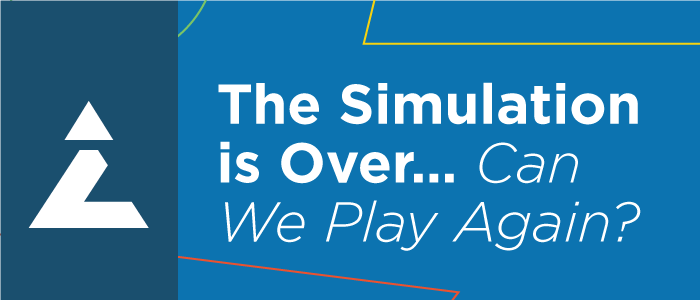The Simulation is Over... Can We Play Again?
November 12, 2020

How can we play again? was the question from enthusiastic students that kicked-off the original Capsim Challenge in the Spring of 2001.
From there, the Capsim Challenge became a biannual event, giving students the opportunity to play either Capstone or Foundation in a global competition. The final battle is a fast-paced two-day tournament between the top six competitors, on the Balanced Scorecard, for both simulations. For international competitors, that can mean meeting deadlines throughout the night.
Bragging Rights – and Transferable Skills
The prize is as simple as bragging rights and a listing in the Capsim Challenge Hall of Fame, but each semester hundreds of students sign up – because they find simulation learning fun.
Professor James Zeigler, from Bowling Green State University, has seen 12 student teams reach the final rounds of the Foundation Challenge. Winning students receive a media release they can include in their resume portfolio, and Professor Zeigler says employers are impressed by their achievement.
“Prospective employers recognize the benefits of simulation,” Professor Zeigler said. “Many employers have demonstrated a high level of interest in hearing about our student experiences during the interview process.”
Professor Norma Juma, from Washburn University, has also seen at least six of her students place in the Capstone Challenge finals. She agrees that the value of simulation learning demonstrates itself once the student graduates.
“The greatest benefits are the testimonials from alumni who talk about the transferable skills they acquired from Capstone,” Professor Juma said. “Some of the things the students rave about are learning how to make an educated forecast and capacity planning. All businesses must plan for appropriate levels of inventory to avoid stockouts. Team dynamics and ethics plug-ins are some of the transferable skills that students talk about, years after graduating.”
Differentiating Learning Programs
“Our BGSU Accounting program is ranked #1 in the State of Ohio (Bloomberg),” Professor Zeigler said. “We believe simulation use in this course offers a significant student learning experience and helps to differentiate our program, among others. As such, we believe the use of Capsim represents an important contribution to our positive ranking.”
Professor Juma said the Capsim Challenge, as an additional learning experience, was a bonus.
“Capsim Challenge gives my students a chance to engage their peers in a global competition,” Professor Juma said. “This builds their confidence and an appreciation for the education they have received at Washburn. When they emerge among the finalists in a global competition, it is a resounding assurance of their learning experience at Washburn.”
Professor Juma said the emotional impact of students’ simulated business decisions anchored the learning.
“Students will not forget how they felt when their team suffered a liquidity crisis in a profitable year,” she said. “Such skills are transferable – as is the ability to develop plausible forecasting strategies, developing ethical decision-making frameworks, having a clear understanding of how to deliver on integrated strategies, and much more.”
Capsim’s 20th year of the Capsim Challenge launches in Spring 2021.


.png?width=80&name=1-questions%20(1).png)